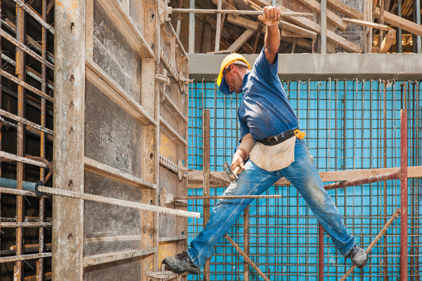There haven’t been any major injuries lately, but there have been plenty of close calls. You know what I am talking about, the time that a hammer falls off a 3rd story girder and just misses someone’s head. Everyone thanks their preferred deity and moves on. No recordable incident means no record is made of the event. No one wants to get in trouble or get any of their crew in trouble so no big deal is made of it. Nothing actually happened, right? It is just human nature to simply move on and get back to work. But it is not ideal from a safety perspective. Perhaps we can learn from these close calls and prevent a more significant incident from occurring in the future.
Three ways to leverage close calls
Close call management is a powerful tool in our safety arsenal. At least that is the finding of a recent study by Jim Bliss and his colleagues at Old Dominion University and New Mexico State.1 They recommend three things that companies can do to leverage close calls and improve their safety.
1 First, companies can make direct changes in their work practice so that close calls don’t eventually lead to recordable injuries.
2 Second, companies can use the close calls to design or locate warnings in places that can help employees avoid the hazard that the close call identified.
3 Third, companies can put recovery processes into place so that if the close call does turn into an actual incident, a faster response can minimize the damage that is done to person or property.
Benefits of being proactive
The management of close calls is a good indicator of the maturity of a construction safety program. It is really easy to brush them off as non-events and ignore the extra work that dealing with them could require. In my experience, this temptation is often too great to resist. But that extra work in the short term can have real benefits in the longer term. It can prevent injuries and even fatalities. It can make the difference between a smooth sailing project and a disaster.
When the management team overseeing a construction site has developed its safety culture far enough to include a deep dive into close calls, they deserve a lot of credit. It is not mandatory and it is easy to ignore for the short-term incentives. On the other hand, it should be a selling point for a general contractor, advertising that they will have fewer safety-related incidents because of their close call management processes.
Footnote
1Bliss J.P., Rice S., Hunt G., and Geels K. (2014) What are close calls? A proposed taxonomy to inform risk communication research. Safety Science, 61, 21-28.
